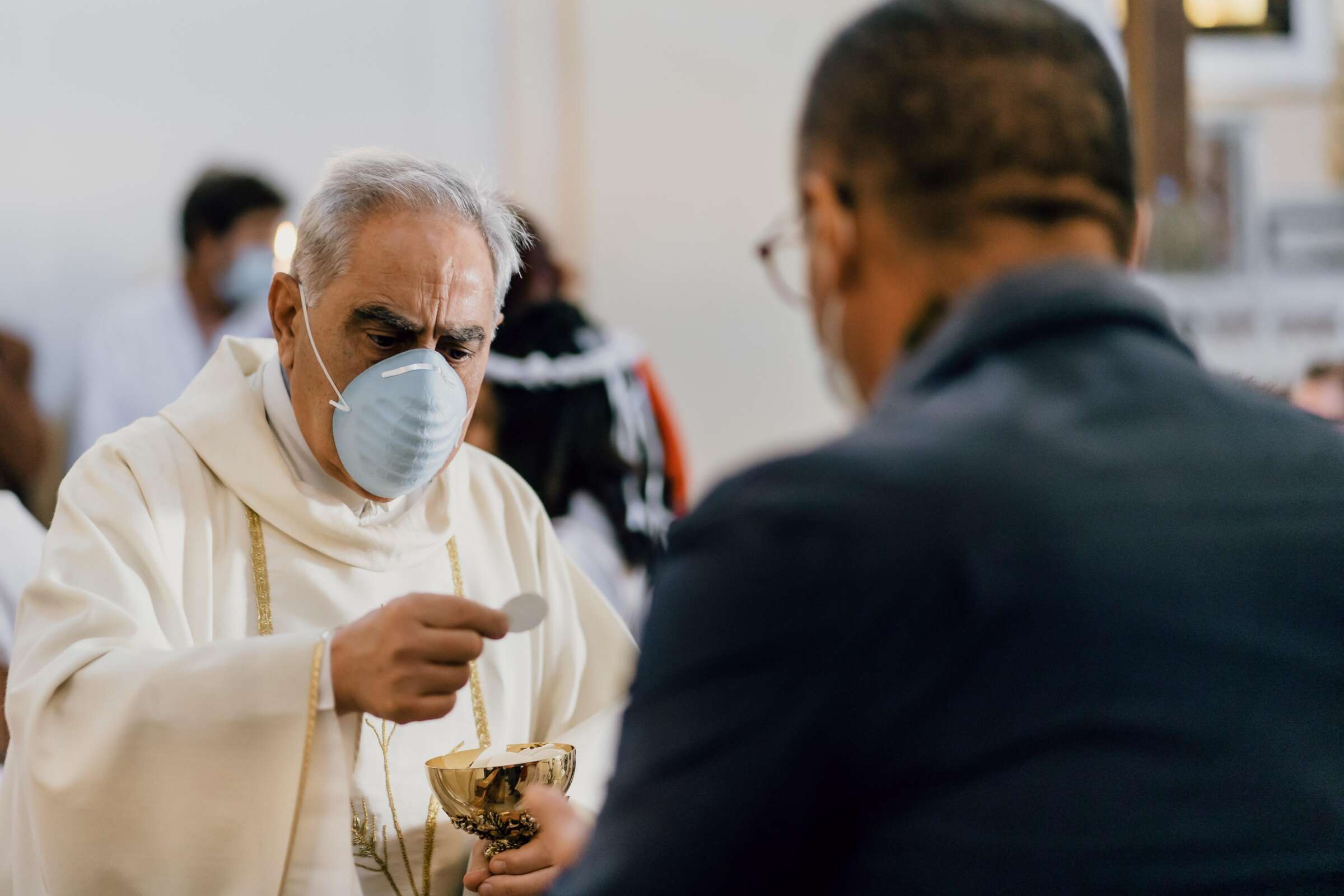Church in lockdown
When churches across the UK took the decision, at the end of March 2020, to close their buildings for public worship, few would have imagined that they were facing a year of ‘locked-down church’.
For many this has entailed a steep learning curve, with new technology enabling online gatherings for worship, Bible study, prayer, and social time. However, the move to online worship has been a mixed blessing. Some, particularly those with limited ability to access the internet due to poverty, age, or infirmity, have become disenfranchised from their churches. Whereas others have been able to re-connect with their congregations despite being no longer able to attend in person. There have also emerged stories of churches seeing online growth, as new people have started worshipping with them.
'All things are lawful, but not all things are beneficial.'
When the requirement to cease in-building worship ended, churches have taken their own decisions depending on their circumstances (in some parts of the UK, churches were again asked to close in early 2021). Some have stayed entirely online, others have re-started physical services. The issue of Christian liberty has been a recurring theme, with the question of whether worship 'should' continue through times of pandemic-related lockdown, and whether the prohibition of worship is an infringement of people’s rights? Some have turned to the book of Hebrews, which instructs its readers not to 'neglect meeting together' (Hebrews 10v25), and argued that worship must continue as an obligation to God. Others have argued that in a world where schools are closed and people are asked to 'stay indoors' for the common good, churches should remain closed in solidarity with the rest of society. In his first letter to the church in Corinth, Paul says ‘“All things are lawful,” but not all things are beneficial. “All things are lawful,” but not all things build up. Do not seek your own advantage, but that of the other.’ (1 Corinthians 10v23-24, see also 6v12). There is a Christian principal that just because we ‘can’, doesn't mean we ‘should’.
Times of change and hardship can often generate theological creativity, and the Coronavirus experience of locked-down church is no exception. One of the issues which has generated a lot of thought is that of whether the sacrament of Communion (Eucharist) can be celebrated online. Some churches have concluded that this participation in the body of Christ can only occur in person, with a priest presiding, and this has been one of the reasons for re-starting in-building worship; while other churches have developed new liturgies for sharing communion in a time of scattered worship. Another area of discussion has been whether online worship should be pre-recorded or live? Some churches have developed a pattern of recording the sermon and other elements of the worship service, and releasing these as a video on Sunday morning; whilst others have concluded that if they cannot gather in space, they can still gather in time, and have used technology platforms to facilitate live real-time worship services.
Continued below...

Many churches have had to deal with the pastoral implications of cancelled weddings, and of funerals with restricted attendance. The importance of offering appropriate pastoral care to those facing bereavement or disappointment, at a time when visiting is often impossible, has been a challenge for many in pastoral ministry. In addition, people are naturally questioning where God is at a time of such suffering, and many have found comfort in reflecting on the Christian message of God-made-flesh in Christ Jesus, which speaks of a God who enters into the suffering of humanity, not to remove that suffering but to be with us as we experience it, comforting those who mourn, and bringing hope to all who ask.
The lessons learned ‘online’ in terms of widening participation will need to be retained.
Looking to the future, and the possibility of an end to the pandemic created by the vaccine deployment, churches will have to grapple with the question of what will survive from the ‘before times’. For many churches, this is an opportunity to reflect on what really matters in church life, and to focus on the core values, vision, and mission that sustains them before God. Some programmes and projects will have died during lockdown, and these will need to be laid to rest well and mourned appropriately: not everything has to endure forever, and letting things go can be part of preparing for future growth. The lessons learned ‘online’ in terms of widening participation will need to be retained, and in-church services may look different for many churches, with ‘hybrid worship’ involving both in-person and online worshippers, becoming more common. There are also new possibilities for collaboration with other organisations, developing church buildings and communities as centres of ‘good news’, encompassing the care for the poor and the vulnerable alongside the invitation to a relationship with God through Jesus.

The Archbishop of Canterbury

Opinion - What's so Christian about Christian Aid (Week)?

